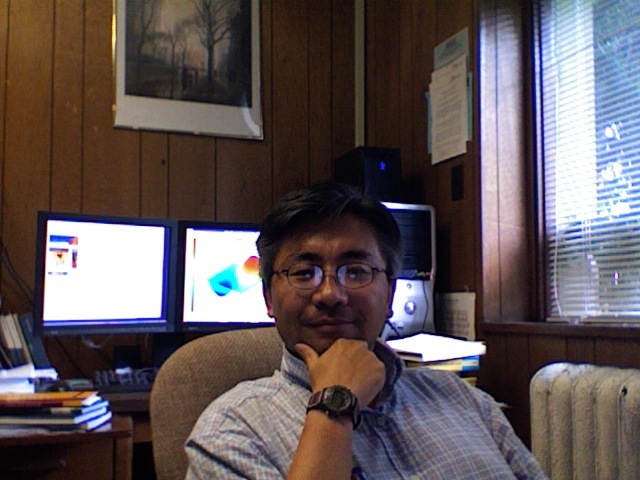 |
Prof. Xiao-Bing Feng
Department of Mathematics, The University of Tennessee,USA
Email: xfeng@math.utk.edu |
Abstract: The first part of this talk presents a generalized coercivity (or a generalized inf-sup condition) for the time harmonic Maxwell operator. An immediate consequence of the generalized coercivity is a wave-number (and domain-size) dependent stability estimate for the solution of the Maxwell equations with impedance boundary condition. The second part of the talk focuses on a presentation of the design and analysis of some interior penalty discontinuous Galerkin (DG) methods which is proved to be coercivity - preserving in all mesh regimes. Once again, an immediate consequence of the coercivity of the discrete operator is a wave-number (and domain-size) dependent stability estimate for the solutions of the proposed DG methods, which is absolutely stable because the stability estimate holds without any mesh constraint. Furthermore, it is shown that the proposed non-standard DG methods converge optimally (with respect to the mesh size). Numerical experiments will be presented to show the efficiency and superiority (over standard finite element methods) of the proposed DG methods.
About the Speker: Prof. Xiaobing Feng's research focuses on Computational and Applied Mathematics. His current research topics include nonlinear PDEs and their numerical solutions with applications to porous media flow, geostrophic flow, attenuated waves and inverse scattering, fluid-solid interaction; materials phase transition, systems biology, geometric flows/PDEs, imaging processing and computer vision.
Date&Time: November 20, 2012 (Tuesday), 16:30–17:30
Location: 606 Conference Room


